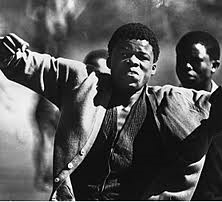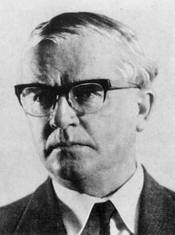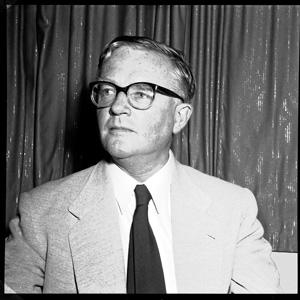 |
| ( ()) |
People have been discriminated, hurt, left out, and killed because of the color of their skin. One of these events was the Apartheid. The Apartheid was in South Africa. It started in 1948 and started to end in 1990 and by 1994 it ended when all citizens could vote for the first time. Black people, mostly, were discriminated against during this time because white South Africans believed that they had the higher power. They used that power for purposes that were not ethical. Some examples of this improper use of power would be the shacks that people would live in, the passbook that were needed for travel, work, and home living. In the book Kaffir Boy by Mark Mathabane, it shows examples of what the houses were like during this time. Children slept on cardboard and used paper as blankets. Houses were created out of scraps of any kind of materials that they could use to build with. Colored people were also beaten up, mutilated, tortured, and murdered because they would argue or protest against the white South African government. The Apartheid has not been the only genocide in the world and unfortunately will probably not be the last. There are strong willed people who believe in what they are doing. They are willing to have harm come upon them and still keep doing what they believe is right. This strong emotional strength is what has broken many genocides before. Stand up for what you believe in.
 |
| ( ()) |
Bram Fischer was a very particular man. He was a strong willed person who fought for what he believed in. He was born in 1908, into a sixth century Afrikaaner's family. Born in the Orange Free state in Africa, he was raised in an Afrikaaner home and spoke English. He considers himself an Afrikaaner and he is very proud of it and his family. For college, Bram studied at Grey University College in his hometown. He studied law at Grey University and at the University of South Africa. After completing the studies in South Africa, he spent 3 years at Oxford. His outcome at Oxford was not very good but the administration and his professors at Oxford agreed that he was much smarter than his grades had perceived. Following his years at Oxford, he soon found a job being a South African lawyer. He represented anti-apartheid figures such as Nelson Mandela at the Rivonia Trial.
Bram
Fischer had lots of conflicts with the police. He had problems with
the
police because he defended the people who were opposed to Apartheid in
South Africa. He was charged with incitement in 1946 for helping revise
the African National Congress Constitution. The National party came to
power in May of 1948 at the general election. After they came to power
they passed the Suppression of Communism act which meant people could
not participate in groups or parties that supported Communism. In 1950
Bram Fischer's name was put under that act. Nelson Mandela, Walter
Sisulu and many
others were arrested for being involved in the Defiance campaign in
1952. Bram was appointed to defend these people. In 1953 he was banned
from going to meetings of the Communist Party of South Africa which he
was involved in. His house and the houses of the people whom he
defended, were being raided by the police. The police raids on his house
and his defendant's did not affect the flow of people going to him for
help. Bram
was the perfect example of a English defender. Bram and his wife Molly
were held in jail without trial because of the Sabotage act. He led the
team of defense that defended Nelson Mandela. When the police raided a
farm that had people who were involved in the liberation
movement, Mandela and others were charged with sabotage. Bram was apart
of that movement but was not on the farm at the time it was raided.
 |
| ( ()) |
Bram Fisher was a South African lawyer who helped black South Africans get out of jail. He helped them because he was a member of the Communist Party of South Africa. Due to his Communist beliefs he thought everyone should be treated with the same respect and have the same rights. In 1943 he helped A.B. Xuma rewrite the constitution of the African National Congress (ANC). That same year he was arrested for helping the mineworkers who were on strike. In 1952 he was the lawyer for Nelson Mandela and Walter Sisulu and 18 other ANC leaders for their part in the Defiance Campaign. The Defiance Campaign was a two year period in which the old, more passive methods were abandoned in favor of boycotts, strikes, and civil disobedience. Bram and his wife were arrested for their Communist party activity but he still continued to fight against apartheid. In 1963 Mandela was arrested again for sabotage and other charges. Fisher led his defense team even though he was also to have been said to have been involved. Mandela was sentenced to life in prison instead of getting the death sentence because of Fisher's help. In 1964 Fisher was arrested for going against the Anti-Communism act. The government didn't like him helping blacks fight against Apartheid so they used this as a way to stop Fisher. He went underground so the government couldn't find him. He wrote a letter saying that no one should have to submit to these horrible laws and that Apartheid was monstrous. He was arrested again and was tried for sabotage. He was found guilty and given a life sentence.
Chokshi, Monal, Cale Carter, Deepak Gupta, and Tove Martin."The History of Apartheid in South Africa." Stanford.edu. N.p., 1995. Web. 15 Feb. 2012.
"Abram "Bram" Fischer." South African History Online. Web. 1 Mar. 2012.
Page created on 3/3/2012 12:00:00 AM
Last edited 3/3/2012 12:00:00 AM
